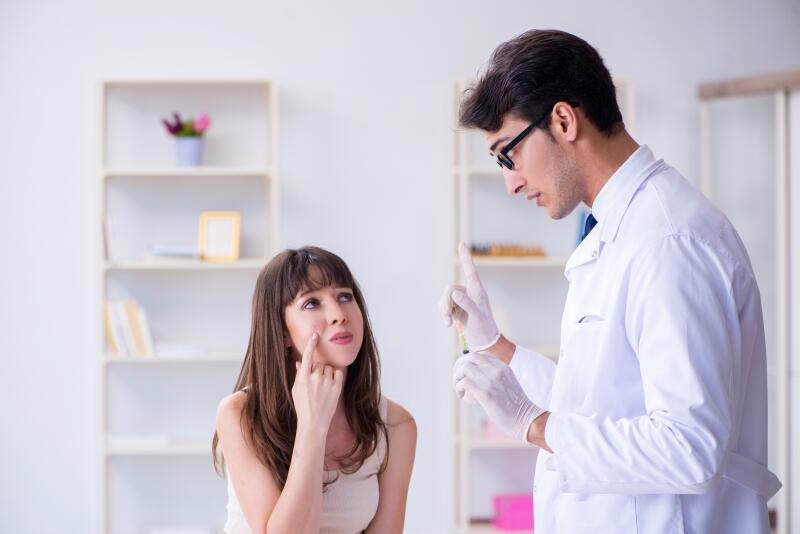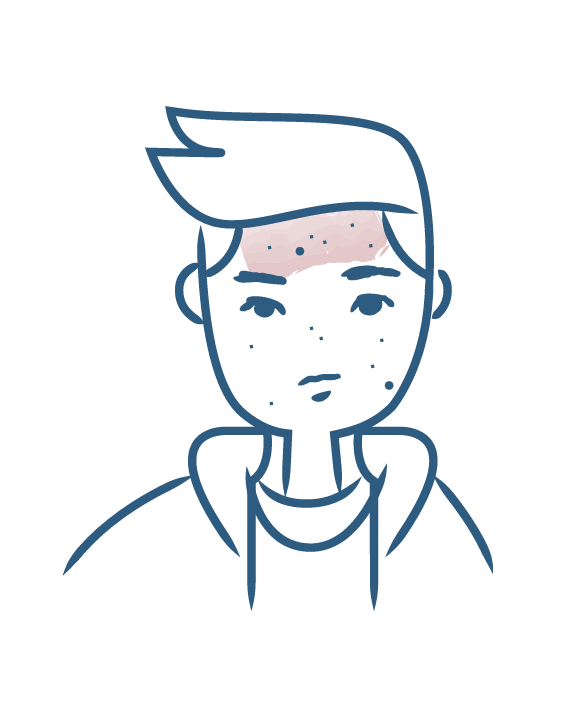-
Your concerns
Our articles to help you gain a better understanding
-
Our solutions
-
Ducray Dermatological laboratories
Our articles to help you gain a better understanding

The GP, or family doctor, is often the most accessible doctor for teenagers and their parents, and for adults with acne. Generally speaking, the dermatologist is the acne and skin specialist. They take care of skin diseases and help to prevent skin cancers by monitoring our moles as well as correcting imperfections such as wrinkles or spots.
Acne is a very common skin condition, but it can be confused with other diseases such as folliculitis or rosacea. Seeing a doctor upon the first signs of spots confirms the diagnosis and enables you to start an acne treatment that is adapted to your lesions, age, needs and desires.
Some medicinal treatments, such as oral isotretinoin, must be initiated by a dermatologist. Some dermatology practices offer specific treatments such as laser treatment or skin peels.
If it is a first consultation, the GP or dermatologist will ask a variety of questions: personal history, family history, lifestyle, etc. They then conduct a thorough skin examination before offering suitable treatment.
In the case of a follow-up consultation, the GP or dermatologist examines the skin to see whether the lesions are improving or worsening, adjusting the acne treatment if necessary. If the treatment has not been carried out correctly, this is the time to tell them!
It is very tempting to go and see several doctors if you have acne, looking for the "miracle" treatment that will make the spots disappear for good. But there is no such thing as a "miracle" treatment. Seeing several doctors for acne takes time, costs money and ultimately delays the start of an effective acne treatment.
Oily or acne-prone skin

Oily or acne-prone skin
NEWSLETTER
Dermatological expertise
To better understand your skin and hair, discover our exclusive content and innovative care products designed to improve your quality of life..